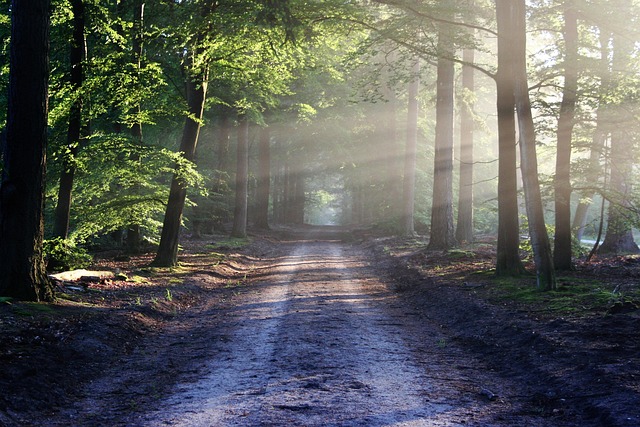Recovery is a personal journey, shaped not only by what’s inside of us but also by what’s around us. One of the biggest environmental factors that can impact recovery is the physical environment—specifically, nature. In recent years, more attention has been given to the healing power of nature and more recovery programs are incorporating natural settings into their treatment. This article will explore why being in a good environment matters for addiction recovery and how nature can be a game changer in the healing process.
Nature and Mental Health
The environment in which an individual spends time during recovery can significantly impact their likelihood of relapse. Different cultures have always known the healing power of the natural world. Recently, science has started to back it up. Research shows that being in nature reduces stress, anxiety and depression—three mental health issues that are often triggered by addiction. Natural environments provide a sense of calm and peace, a break from the overstimulation of daily life which can be a big trigger for those in recovery.
A study found that spending time in green spaces reduces stress and improves cognitive function and overall well-being. For those in addiction recovery, this is huge. Nature can help regulate mood, lower cortisol and create a space for healing to happen. This sense of grounding and peace is essential for anyone trying to stay sober as it provides a safe, nurturing environment that supports the hard work of recovery.
Nature’s Role in Reducing Relapse Risk
The environment you’re in during recovery can have a big impact on your relapse risk. For many in recovery, the challenges of staying sober come from external triggers—people, places and things that remind them of their past substance use. The closer these triggers are, the higher the risk of relapse. The importance of a controlled, supportive environment can’t be overstated in these moments.
Being in nature gives you a chance to disconnect from the stressors that come with urban environments—social pressures, noisy surroundings, and even unhealthy relationships. Removing these stressors allows you to focus on your healing and create a new mental framework that doesn’t rely on the same patterns of behavior you used to.
In nature the sights and sounds are different—softer and more calming—and that reduces cravings and urges. A study by the University of Essex found that just 30 minutes in a natural environment can reduce anxiety and improve your mood and give you immediate relief. For those in recovery that’s time away from daily stress to reset emotionally and physically. Over time being connected to nature can be a more sustainable and long term way to stay sober with nature as a touchstone to come back to when life gets overwhelming.
The Power of Outdoor Therapy: Eco-Therapy and Adventure-Based Recovery
One of the biggest advancements in addiction recovery is the inclusion of eco-therapy and adventure-based recovery programs. These programs recognize the healing power of nature and use it as part of the treatment.
Eco-therapy, also known as nature therapy, is structured activities in outdoor settings to help you process your emotions and reconnect with yourself. These can take many forms—guided walks, outdoor mindfulness exercises or even gardening. The idea is that being in nature helps you become more mindful, reduce your stress and find clarity when things get tough.
In addition to eco-therapy, adventure-based recovery programs—hiking, rock climbing or camping—have become popular ways to build resilience and self confidence. These programs give you a chance to face challenges, build trust with others and feel a sense of accomplishment in a safe supportive environment. These activities provide a physical outlet for pent up energy and foster a sense of community and connection that’s essential to the recovery process.
Nature Recovery Plan
You don’t have to sign up for a program to bring nature into your recovery. There are simple ways to incorporate nature into your daily life, even in small doses, to aid in the recovery process.
- Find a Quiet Space: Whether it’s a nearby park, beach or forest, find a place where you can sit in peace and reflect. Even a few minutes of solitude in a calm natural environment can make a big difference to your mental state.
- Outdoor Meditation: Take your mindfulness outside. Meditating in nature allows you to ground yourself and connect with the world around you. The sounds of birds, rustling leaves and fresh air all contribute to a calming experience that clarifies the mind.
- Get Physical: Hiking, walking or even gardening can be powerful activities to keep your body engaged and your mental wellbeing in check. These activities give you a sense of achievement and release endorphins which are essential for a positive outlook on life.
- Join a Nature Based Support Group: Many communities now have support groups that meet in outdoor settings, combining the power of nature with the healing of group therapy. This could be a hiking group for people in recovery or a garden based support program.
Nature as the Path to Long Term Recovery
Ultimately the environment we live in and interact with plays a big role in our recovery journey. Nature is a sanctuary from the chaos of modern life, a safe space to heal. Whether formal programs or informal activities, being in nature has benefits for those in addiction recovery.
By prioritising environments that nurture mental, physical and emotional wellbeing, people in recovery can increase their chances of long term success. Nature with its ability to calm the mind and restore balance offers more than just a break from the hustle and bustle of life – it offers a way to change for good. For anyone in recovery the environment they inhabit is one of the most powerful tools for healing, growth and freedom.



